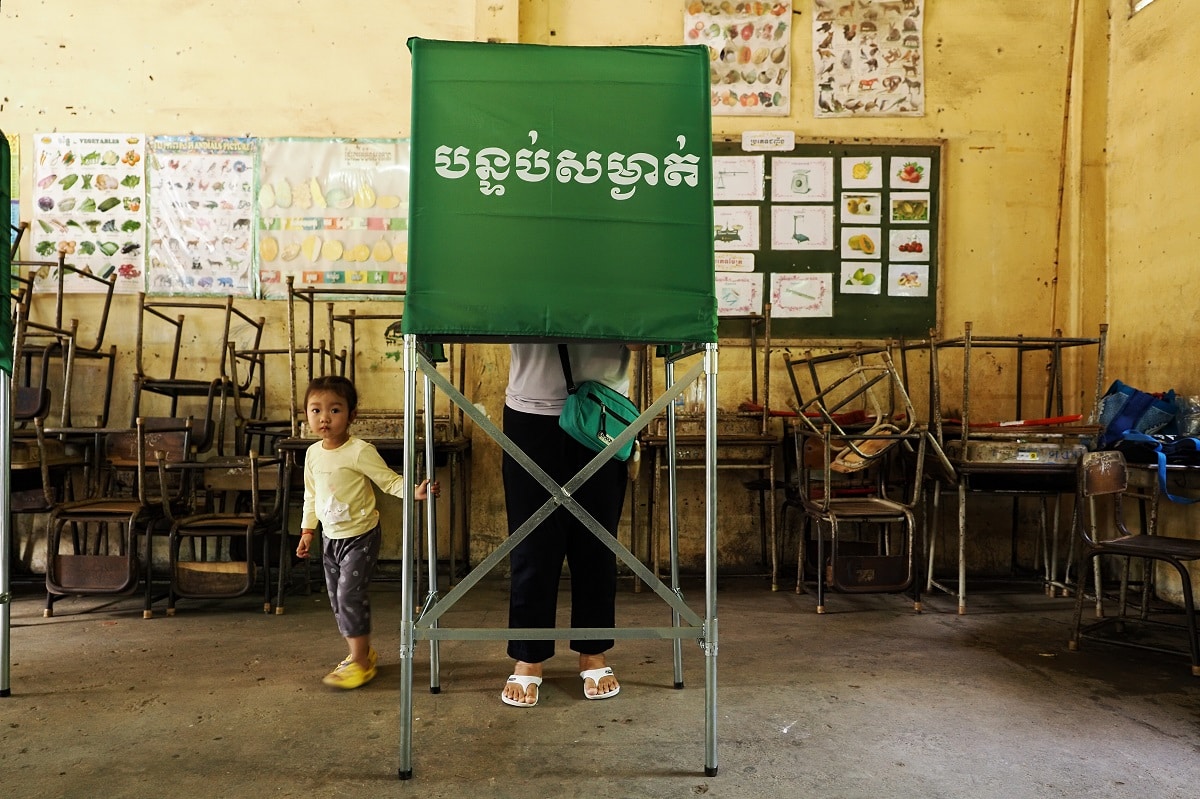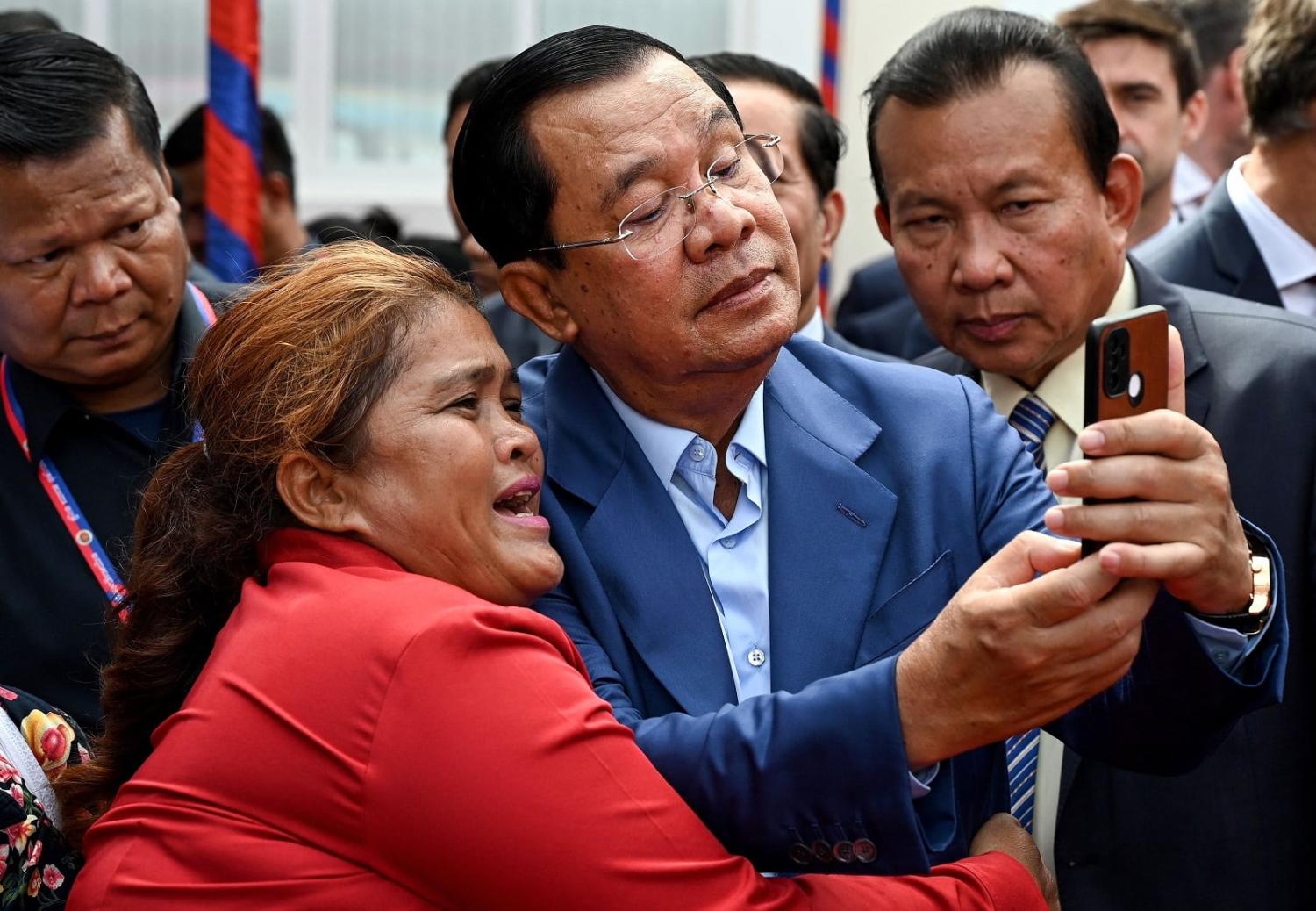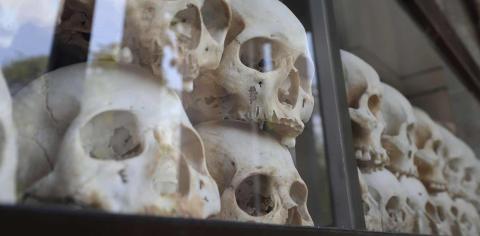Cambodia’s Hun Sen, the world’s longest serving prime minister, will today hand over that role to his son, Hun Manet, having crushed all opposition during his 38 years in power. Australia played a leading role three decades ago in ending Cambodia’s civil war, assisting the birth of a new Cambodian constitution, which promised pluralism and liberal democracy, and supervising the successful conduct of UN-held elections in 1993.
But we, along with the rest of the international community, have done less than we should have to arrest the country’s authoritarian slide. The change of guard is an occasion to rethink how we might do better.
The rot began immediately after the 1993 election, when Hun Sen’s party unexpectedly ran a close second to Prince Sihanouk’s royalist party, but refused to accept its defeat. All the key external players – Australia included – yielded, too meekly in retrospect, to Hun Sen’s demand to be appointed “Second Prime Minister”.
Clever and ruthless, Hun Sen vanquished his opponents and took steps to ensure no opposition party could meaningfully contest his leadership. Over the years, his Cambodian People’s Party has become synonymous with corruption, land evictions, control of the judiciary and army, political repression, wide-scale imprisonment, and linked to deaths of outspoken critics, such as the brazen daylight shooting of Kem Lay in 2016.
Time has not mellowed Hun Sen or his government. In recent years, a number of NGOs – including those highlighting land grabbing and deforestation – have been silenced or closed. A new Trade Union Law made it harder to set up unions, reduced collective bargaining rights and restricted the ability to strike. Some union leaders, who had mobilised members to support the opposition, were jailed.

A single gateway is being set up to control all internet traffic and the government can already secretly record or intercept any email, SMS or telephone call without judicial permission. The right to privacy has been effectively removed and communication that “may affect public order or national security” is prohibited. A 39-year-old widow was jailed for two years after posting a film of herself throwing a shoe at a billboard of Hun Sen. A 29-year-old man was arrested on his wedding day for calling the government “authoritarian” and another charged for a Facebook post from five years earlier.
Civil society. Trade unions. Freedom of speech. These pillars of democracy are crumbling, and freedom of the media is also under siege, with the forced closure of the most popular newspapers and radio stations not owned by the ruling party.
Any pretence of genuine electoral democracy vanished before the 2018 election when the leader of the opposition, Kem Sokha, was arrested and the puppet-Supreme Court banned the main opposition CNRP party. The continued persecution of Sam Rainsy, the other opposition leader, followed and the Candlelight Party he founded was banned from the 2023 election. Rather than becoming a pluralist liberal democracy, Cambodia is now a country where Hun Sen’s party controls 99.8 per cent of all local councils, 100 per cent of all elected senators, and 96 per cent of all National Assembly members.
Australia has been less active than it might have been in calling all this out. Hun Sen’s assault on democracy gave the Coalition government no pause at all when negotiating Scott Morrison’s indefensible refugee resettlement plan in 2014. Labor supported the passage in 2021 of Australia’s own “Magnitsky Act”, probably the most useful form of pressure against corrupt and human rights-violating regimes, by making it easier to target sanctions against individuals, including asset freezes and visa bans. But it has been reluctant to apply it against even the most obvious Cambodian candidates.
Just before Cambodia’s flawed election last month, Australia sent its Special Envoy to talk trade, which was paraded in Cambodia as an endorsement of Hun Sen’s rule and the upcoming election. Then, immediately after that flawed election, the Cambodian government publicised a letter from Australia’s government pledging to increase aid. Australia’s recently announced International Development Policy has peace, stability and prosperity as its main objectives. Commendable of course, but where is the reference to democratic governance? We do say that we seek “a world in which the rights of all people are upheld” but set out no action to achieve it. The new Policy pledges to “work for rules and norms that are mutually agreed”. But agreed with whom? Leaders who ban the opposition and jail critics?
There is some speculation, probably over-optimistic, that American-educated Hun Manet will not just be his father’s son, despite Hun Sen’s vow to resume overt national leadership if Manet “fails to meet expectations”. Certainly, we should test the new water before plunging in.
But the bottom line is that being, and being seen to be, a good international citizen – as Australia has always aspired to be – means doing everything within our power to support universally acknowledged human rights. And the Cambodian diaspora here in Australia are not the only ones now asking whether, in responding to what can only be described as a human rights and democracy horror story in recent decades, we have done enough.
Professor The Hon. Gareth Evans AC KC was Australia’s Foreign Minister 1988–1996 and played a leading role in initiating the Paris Peace Agreements that ended Cambodia’s civil war.
Gordon Conochie is an adjunct Research Fellow at La Trobe University and author of the newly released book, A Tiger Rules the Mountain: Cambodia’s Pursuit of Democracy.

